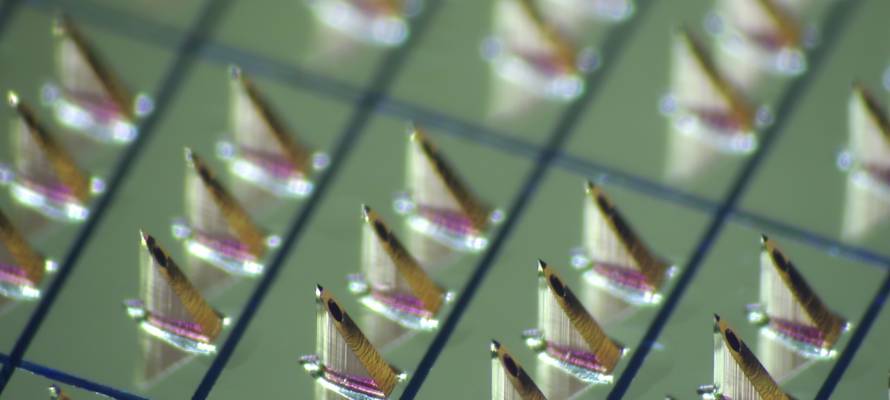This new Israeli nanotech device could drastically reduce the time it takes to inoculate the world when a coronavirus vaccine is ready.
By Yakir Benzion, United with Israel
On Tuesday, the developers of cutting-edge Israeli nanotechnology devices announced that their “micro-needles” provide the same results for inoculations, yet use far less vaccine.
The company, NanoPass, is sharing its technology to contribute to the fight against COVID-19 and the search for a coronavirus cure.
The super-thin injection needles made by NanoPass “target immune cells of the skin by harnessing the skin’s potent immune system to improve vaccines,” a company spokesman said. The result is that the vaccine can work more efficiently while dramatically reducing the dose needed to achieve the same immunity.
With teams around the world racing to develop a cure or means to prevent the spread of COVID-19, billions of doses of a new vaccine will be needed. However, producing that much vaccine and administering it could take years, creating a lag during which more people would succumb to the pandemic.
NanoPass CEO Dr. Yotam Levin said his method would dramatically cut down inoculation times.
“The human skin is our first layer of defense against many infectious diseases,” said Levin.
The relatively large needles used for subcutaneous or intramuscular injection of vaccines skip over the top layer and Levin says his micro-needles target the upper skin for a reason.
“The skin contains specialized dendritic cells that process and induce strong immune responses – that’s why micro-needle injections enable reduction of vaccine doses by five-fold, thereby reducing overall cost, required capacity and production time,” Levin said.
According to the company, by injecting vaccines into skin layers, antigens are delivered closer to these cells, so that smaller doses of antigen might induce an equivalent immune response to the standard dose.
NanoPass is sharing its proprietary technology with leading vaccine and immunotherapy companies around the world to help speed the development of a safe, effective and affordable coronavirus vaccine designed for absorption in the top skin layers.
Marketing director Yarin Sinai said the company’s technology was backed up by over 55 completed or ongoing clinical studies with various vaccines and vaccine platforms, including pandemic flus like H1N1, which is associated with the deadly Spanish Flu pandemic a century ago, and the H5N1 bird flu. He said the studies so far have shown improved immune response with lower doses of vaccine.
“Using a vaccine administered by our technology could turn what is now 500 million doses of vaccine into 2.5 billion doses,” Sinai said. “Taking into account the time needed to produce and distribute so much vaccine for billions of people around the world, we can cut that time drastically.”
